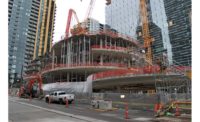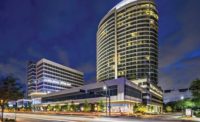The firm also worked on numerous large projects in 2012 that helped push up revenue, including the Kearl Oil Sands site for Exxon in Fort McMurray, Alberta. Another was an expansion at the 500,000 barrel/day Valero Energy Corp. refinery in St. Charles, La., which generated more than $100 million in revenue for MMR.
"We peaked with almost 700 people on that project," Rutland says. "It's a complete revamp of a lot of the existing facilities. It's been a two-year ongoing project."
One other was the restart of an Eastman Chemical Co. ammonia plant in Beaumont, Texas, for the fertilizer unit of Orascom Construction Industries (OCI), which acquired the plant in 2011.
After being idled for seven years, hit by two hurricanes and having units that were more than 40 years old, the plant's "equipment systems had to be inspected and reviewed, and work scope developed to determine if we refurbish, replace or upgrade," says Jeremy Bruser, district manager in MMR's Beaumont office. "And that included every system, especially electrical and instrumentation."
The OCI project, supported with 24/7 operations, took more than one year, Bruser notes. With so many antiquated systems, "decisions took a lot of cooperation among the engineers, owners and construction companies," he says. "That was a large part of the success—the ability of all those different entities to work together pretty seamlessly."
MMR also recently completed a large and complicated distributed-control-system (DCS) replacement project for BASF Corp. during multiple turnaround/outage periods. MMR's scope included major cable replacements, field work and complete gutting and replacement of an entire DCS rack room, says Scott Brandenburg, BASF Corp. vice president of engineering and maintenance.
"Due to the complicated nature of the project, MMR, as the constructor, was brought on board early enough in the project to help make realistic and critical schedule decisions," says Brandenburg. The firm "contributed strong construction expertise and innovative ideas on how to best execute the work that in the end allowed BASF to complete this important project. We have employed MMR on several construction projects over the past few years. They have performed well and been able to meet demanding construction schedules."
Safety and Outreach
Safety and training have also been key to the company's success. MMR just completed a major training center in Baton Rouge, with plans to build additional centers in Odessa and Corpus Christi. Those facilities "will help generate the kind of craft personnel that we're going to be looking for," Rutland says. "We're going to train our own."
As of August this year, MMR has worked about 6.5 million man-hours, with an experience modification rate—a measure of past cost of injuries and future chances of risk—of 0.54 and a total recordable incident rate of 0.15, and no lost hours. "That's versus the national [TRI] average of 3.8, so safety is very important to us and our clients, and we spend an awful lot of time and effort to make sure that we work as safely as possible," Rutland says. The firm is on track to exceed last year's 7.5 million in man-hours worked.











